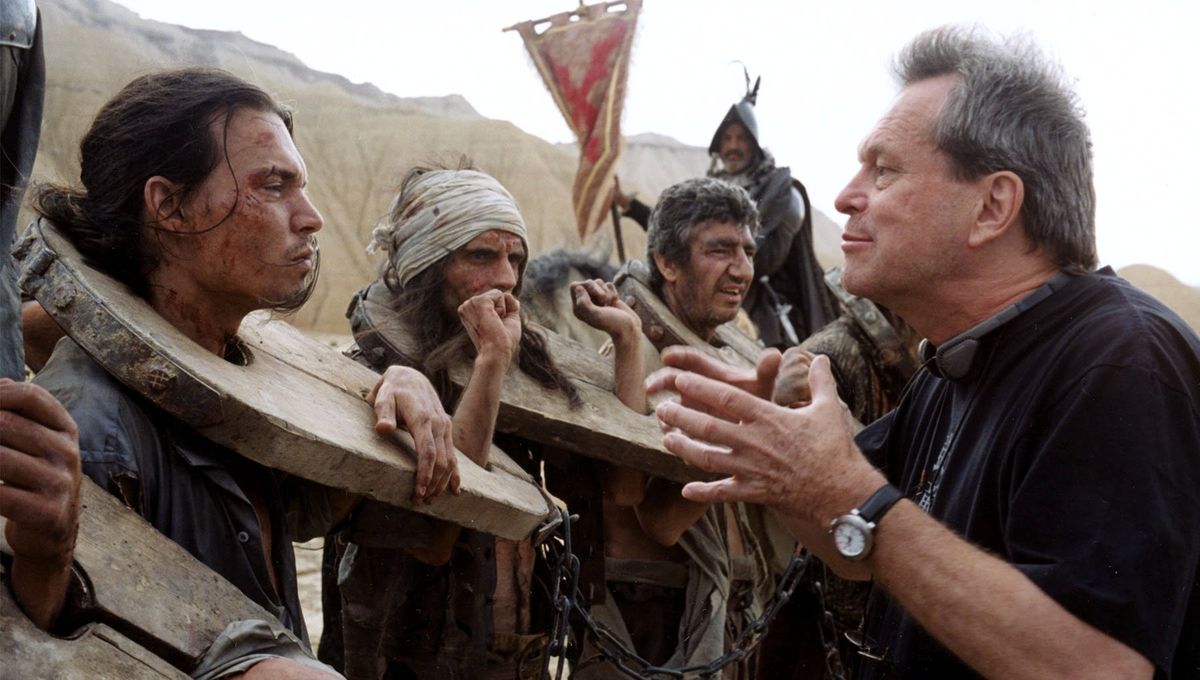I have always believed that the dynamics of power in film production are unique and unlike any other government body. On a film set, it’s the assistant director who calls the shots. They have planned and scheduled the whole day according to the director’s needs and the producer’s capabilities. During pre-production, the director handles all the various departments and makes his/her final adjustments. The producers seem to have a considerable amount of power over the entire production. But also, it’s the director’s film, their vision, and their story. So, who holds the power? It isn’t a dictatorship, that’s for sure but it’s also not a democracy. After watching Lost in La Mancha, it dawned upon me that this power struggle is most visible and naked when the shit hits the fan. And it is then when the relationships between department heads are reevaluated.
In Lost In La Mancha, Terry Gilliam is struggling to finish his lifelong passion project “The Man Who Killed Don Quixote”. Various problems have made production difficult. The major of those being Jean Rochefort’s Illness. It reminded me of when Martin Sheen had that heart attack during the production of Apocalypse Now. I believe Coppola stopped most of the production till he was back. But Terry couldn’t or maybe he didn’t want to. He kept on shooting other scenes with Johnny Depp and I think that may have been a reason for his state of mind at the end of the film. There were a lot of problems culminating in this, namely Vanessa’s contract not being signed so close to the start of the production, the sound stage being crappy, the storm that uprooted the whole crew and consequently the insurance people who wrote it off as an act of God. Ironical in Terry’s situation.
Underneath all of these problems, I could see a director passionate about making his film – the only thing keeping him happy were the giants and crafting each seat piece and costume according to the film which he mentions he has seen a million times before in his head. I could also see an assistant director taming this man and his visions based on the fact that they got half the money they needed to make a film this big and elaborate. I could also see these European producers who are both excited and somewhat afraid to work for the first time on a project of this scale with a Hollywood director they haven’t worked with before but whose ‘work’ is well known to them. I could also see an actor who decided to do this bigger-than-reality character and for seven months studied a language he couldn’t say, to act in it. Between these people forms a unique working relationship that we have all seen in film sets but which I think we take too lightly. Frankly, the film wouldn’t have survived this long without the relationship that Gilliam had with his AD and his DOP. But then again, there were a lot of times when the AD stopped the production even if Terry wanted to keep it going. Even if Jean Rochefort was willing to ride the horse. I could see where he was coming from given that he has worked so hard on the role. And then there were the producers who didn’t know what was going on and were continuously being hit with some new problems, like the storm and the insurance.
I think when a film of this scale is being made, especially when it has gone through so many different mutations, it takes its own shape and becomes its autonomous entity at which point all you can do is worship the final product. I tried to remember what Jodorowsky did differently, why he couldn’t even get to the production stage, but I couldn’t find the answer. This symbiotic relationship that the director, the AD, the producer, and the lead actors enter when the production starts is something very interesting to me. Can we always hire people who we have worked with before and work well with us, know our style of filmmaking? Do we hire friends? Do we hire people who are professionals and are good at their job? Which kind of producers should we go to? Who will stay till the end? Will this structure break down and crumble any previous relationship you had with anyone? As a director, I am constantly trying to find the answers to these questions but also at the same time believe that the film is the ultimate power which we all should surrender to.

Leave a Reply